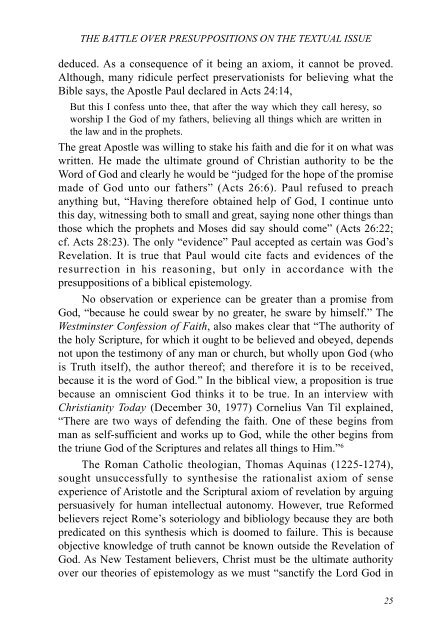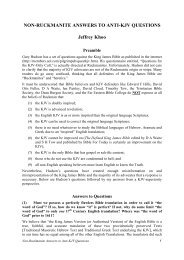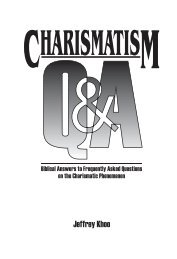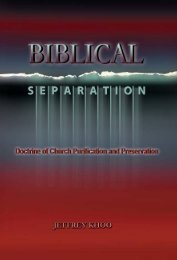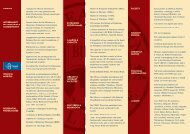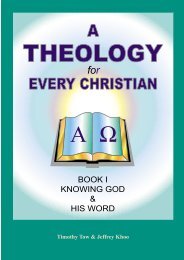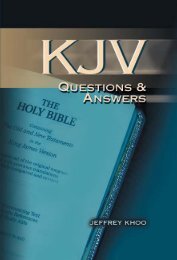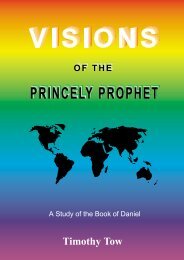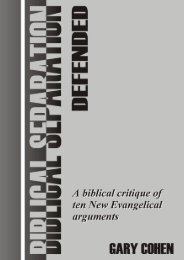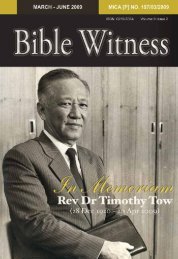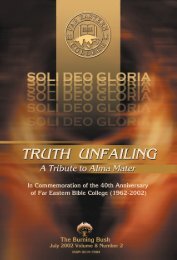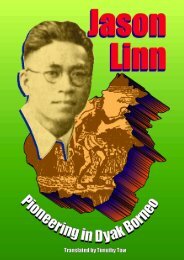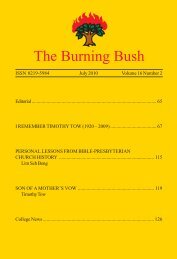The Burning Bush - Far Eastern Bible College
The Burning Bush - Far Eastern Bible College
The Burning Bush - Far Eastern Bible College
Create successful ePaper yourself
Turn your PDF publications into a flip-book with our unique Google optimized e-Paper software.
THE BATTLE OVER PRESUPPOSITIONS ON THE TEXTUAL ISSUEdeduced. As a consequence of it being an axiom, it cannot be proved.Although, many ridicule perfect preservationists for believing what the<strong>Bible</strong> says, the Apostle Paul declared in Acts 24:14,But this I confess unto thee, that after the way which they call heresy, soworship I the God of my fathers, believing all things which are written inthe law and in the prophets.<strong>The</strong> great Apostle was willing to stake his faith and die for it on what waswritten. He made the ultimate ground of Christian authority to be theWord of God and clearly he would be “judged for the hope of the promisemade of God unto our fathers” (Acts 26:6). Paul refused to preachanything but, “Having therefore obtained help of God, I continue untothis day, witnessing both to small and great, saying none other things thanthose which the prophets and Moses did say should come” (Acts 26:22;cf. Acts 28:23). <strong>The</strong> only “evidence” Paul accepted as certain was God’sRevelation. It is true that Paul would cite facts and evidences of theresurrection in his reasoning, but only in accordance with thepresuppositions of a biblical epistemology.No observation or experience can be greater than a promise fromGod, “because he could swear by no greater, he sware by himself.” <strong>The</strong>Westminster Confession of Faith, also makes clear that “<strong>The</strong> authority ofthe holy Scripture, for which it ought to be believed and obeyed, dependsnot upon the testimony of any man or church, but wholly upon God (whois Truth itself), the author thereof; and therefore it is to be received,because it is the word of God.” In the biblical view, a proposition is truebecause an omniscient God thinks it to be true. In an interview withChristianity Today (December 30, 1977) Cornelius Van Til explained,“<strong>The</strong>re are two ways of defending the faith. One of these begins fromman as self-sufficient and works up to God, while the other begins fromthe triune God of the Scriptures and relates all things to Him.” 6<strong>The</strong> Roman Catholic theologian, Thomas Aquinas (1225-1274),sought unsuccessfully to synthesise the rationalist axiom of senseexperience of Aristotle and the Scriptural axiom of revelation by arguingpersuasively for human intellectual autonomy. However, true Reformedbelievers reject Rome’s soteriology and bibliology because they are bothpredicated on this synthesis which is doomed to failure. This is becauseobjective knowledge of truth cannot be known outside the Revelation ofGod. As New Testament believers, Christ must be the ultimate authorityover our theories of epistemology as we must “sanctify the Lord God in25


